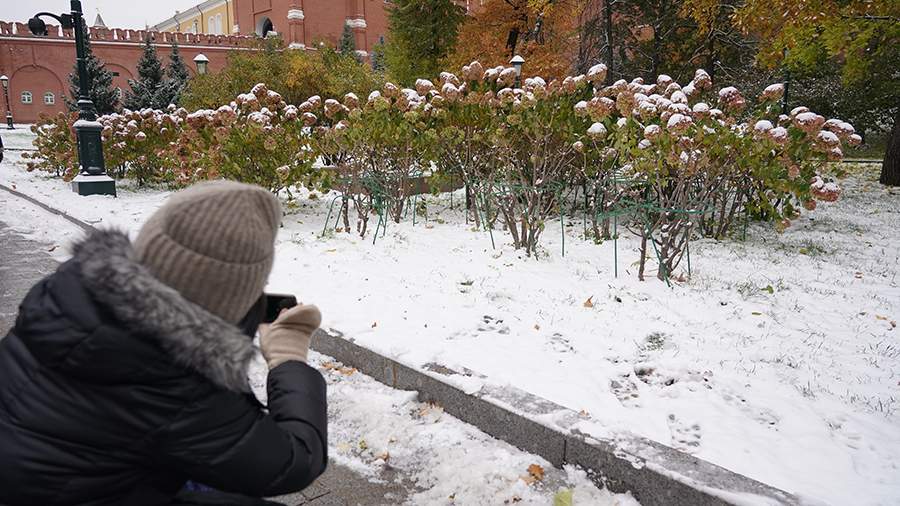Rules for photography in public places - what you need to know

The right to freely seek, produce and disseminate information is enshrined in the Constitution of the Russian Federation. But before you go for a walk with a camera or smartphone, you should familiarize yourself in advance with the list of places where you can and cannot take pictures. Izvestia tells us when you can take photos without fear, and in what cases shooting will result in a fine.
In what public places photography is allowed
According to the law, the ban does not apply to shooting in a public place. Public places include any space open to visitors. These are cafes, restaurants, stores, markets, shopping centers, car dealerships. This means that filming in them is absolutely legal. For example, in cafes you can freely take photos and videos from the premises, fix price tags and assortment of goods.
Employees of the establishment cannot try to interrupt the shooting. But at private events or with limited access organizers in some cases have the right to prohibit the recording of events.
The use of someone's image is allowed if the person captured in the photo is not the main object. This rule does not apply to artists, animators and public people participating in the event. In addition, you can take pictures of store employees to protect consumer rights. If an employee tries to take away the camera, it will be considered as an excess of official duties.
Taking photos and videos in a museum, library or exhibition has its own nuances. You can take photos there, but only if they are taken for your personal archive. For commercial photography, you will need to obtain permission and pay a fee. Other restrictions are also valid, in particular the ban on flash photography.
Where photography is prohibited
Taking pictures is primarily prohibited in places where a person's privacy would be violated. Such places include toilets, fitting rooms in stores, changing rooms in fitness centers and saunas. The opposite actions are regarded as a violation of privacy and are prosecuted under the Criminal Code.
Restrictions also apply when visiting theaters and cinemas. For example, for filming during a performance or movie screening, the viewer may be asked to remove the camera and removed from the hall, and in case of non-compliance - prosecuted. This is due to the production and distribution of pirated copies, which is an infringement of copyright.
Previously, copyright holders have repeatedly come forward with the initiative to ban filming in a movie theater. Two years ago, the relevant bill was introduced in the State Duma in order to support the domestic cinematography. At the same time, selfies and photography against the background of the screen do not fall under the ban.
In addition, photography is prohibited in courts, correctional institutions, a number of military, industrial and customs facilities. Media representatives who have received accreditation may take pictures there, while others will need to obtain written permission to take pictures.
Penalties for illegal photography and videotaping in public places
As a rule, filming itself is not the subject of legal disputes. Liability comes in the case of illegal collection and dissemination of information, including information about a person's private life, and data that constitute a private, family or commercial secret. The minimum penalty for this is a fine of up to 200,000 rubles, and the maximum penalty is imprisonment for up to two years.
If the shooting was carried out at regime facilities without obtaining the necessary documents, the punishment will be more severe. When studying the photographer's personality and related circumstances, he may face serious charges, such as espionage or preparation of a terrorist act. And if it turns out that his activities are regulated from abroad, the shooting may become additional evidence of a serious crime.
What are the rules of photography in other countries
Different countries also have their own photography rules. They may vary, but in most cases are justified by state security considerations and the mentality of the locals. If they are violated, travelers can face a hefty fine or even jail time.
For example, in many Arab countries it is forbidden to film women and residents on the streets. If the police intervene, all photos will have to be deleted and a fine will have to be paid. And photographing oil refineries, military facilities, sheikhs' palaces and royal residences is fraught with criminal charges, as in Saudi Arabia and the United Arab Emirates (UAE).
The situation is almost the same with religious buildings. For example, in Malaysia it is not allowed to take pictures inside temples and Buddha statues, and in the Vatican - to take pictures in the Sistine Chapel. In addition, in a number of countries, tourists are not allowed to photograph railway stations, air and sea ports and other infrastructure.
Earlier "Izvestia" told about the rules of photography and videotaping at polling stations.
Переведено сервисом «Яндекс Переводчик»

